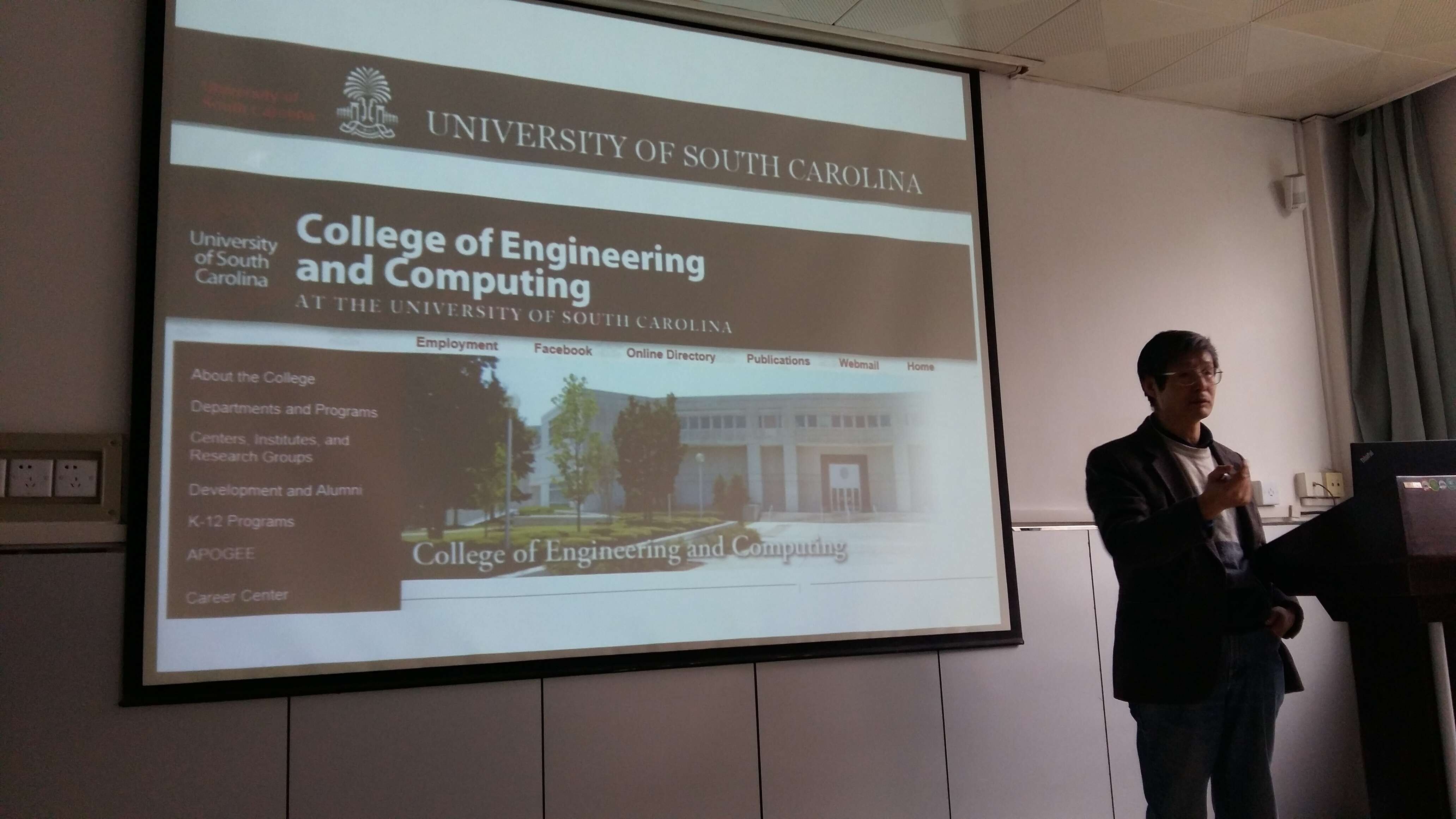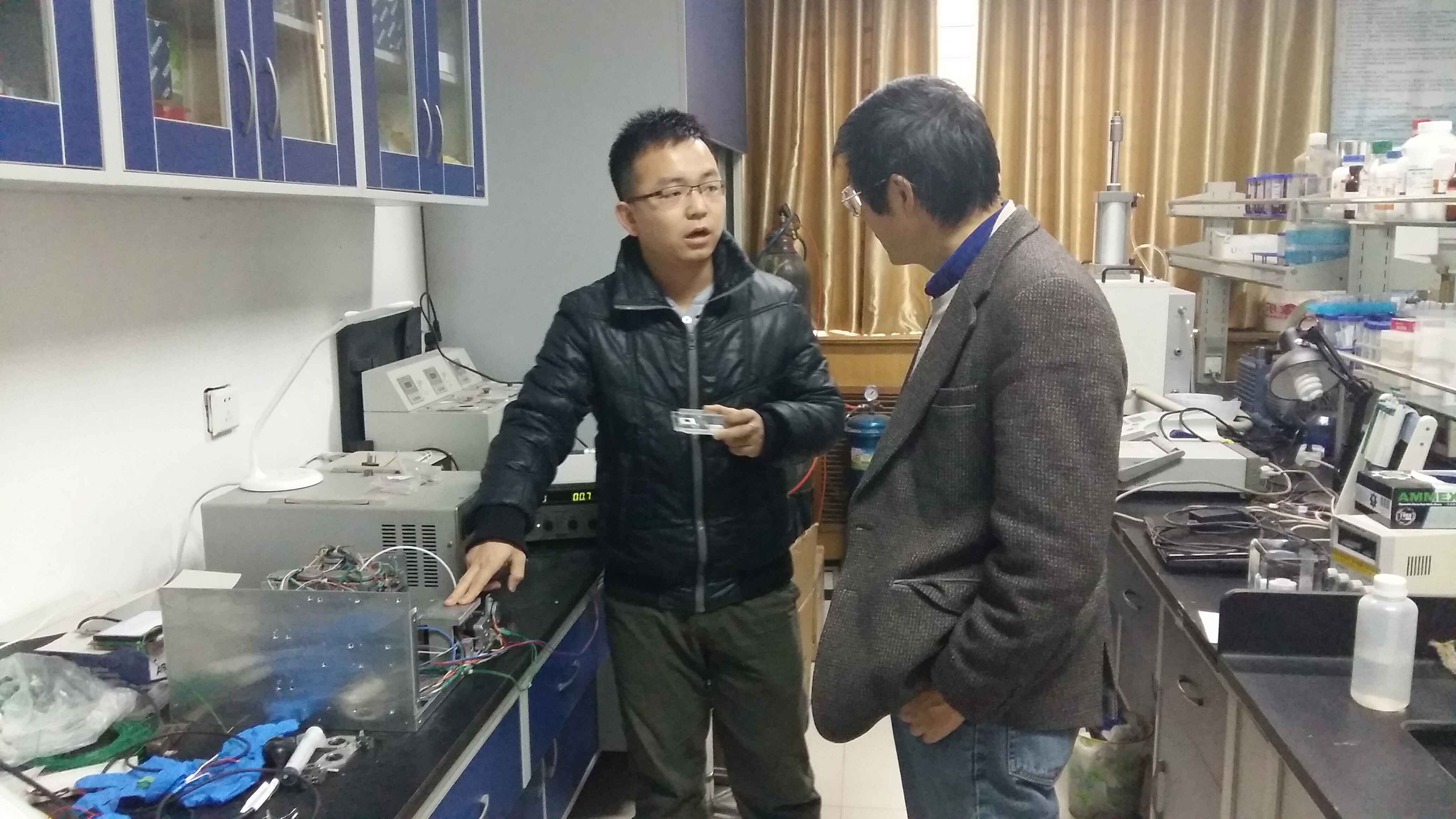On the morning of Jan. 6th, associate professor Guiren Wang from University of South Carolina gave a talk and visited BEBC.
Prof. Guiren Wang gave a talk entitled "Ultrahigh spatiotemporal Resolution Optical Measurement and Lab-on-a-Chip Applications ". Micro/nanofluidics based lab-on-a-chip is a multidisciplinary and new field in which interfacial flows have to be addressed and measured with nanoscale resolution. However, current measuring techniques have mostly spatial resolution on the order of a few micrometers using micro- or nanoparticles as tracers, whose velocity in many cases is unfortunately different from that of fluids. He introduced a novel small and neutral molecules as the tracer, i.e. Laser Induced Fluorescence Photobleaching Anemometer (LIFPA), to measure flow velocity in micro- and nanochannels. He also introduced a far field optical nanoscopy based on stimulated emission depletion (STED) with femto lasers which will be a powerful new tool in science and engineering. Integrated with STED, LIFPA has potential to measure interfacial flows, such as slip flow in biofluids with unprecedented high spatial (~ 70 nm) and temporal resolution (5 µs) resolution in micro/nanofluidics. Furthermore he also introduced STED for nanofabrication of nanostructures to overcome diffraction limit in photolithography and their microfliudic cell sorter based on dielectrophoresis for cancer cell separation.

After giving the talk, Prof. Guiren Wang visited BEBC. Lei Cao introduced the lab to Prof. Wang. Looking forward to more cooperation!

Dr. Wang with a multidisciplinary background, is currently an Associate Professor in the Biomedical Engineering Program and Department of Mechanical Engineering, University of South Carolina, Columbia, South Carolina, USA. Dr. Wang received his PhD. from Technische Universität Berlin. He was a postdoctoral research fellow in Stanford University. After working in industrial for about seven years, he came back to academia. Dr. Wang received Career Award from National Science Foundation (NSF), North American Mixing Forum and Rising Star from the University of South Carolina. As the Principal Investigator, he also received the grant from NSF for Major Research Instrumentation to develop two tunable femto lasers based Stimulated Emission Depletion (STED) nanoscopy. Currently his research interests include nano/microfluidics and biochip, super-resolution far field nanoscopy, early cancer detection, nano/microfabrication, fluorescence detection, turbulent and mixing, etc.